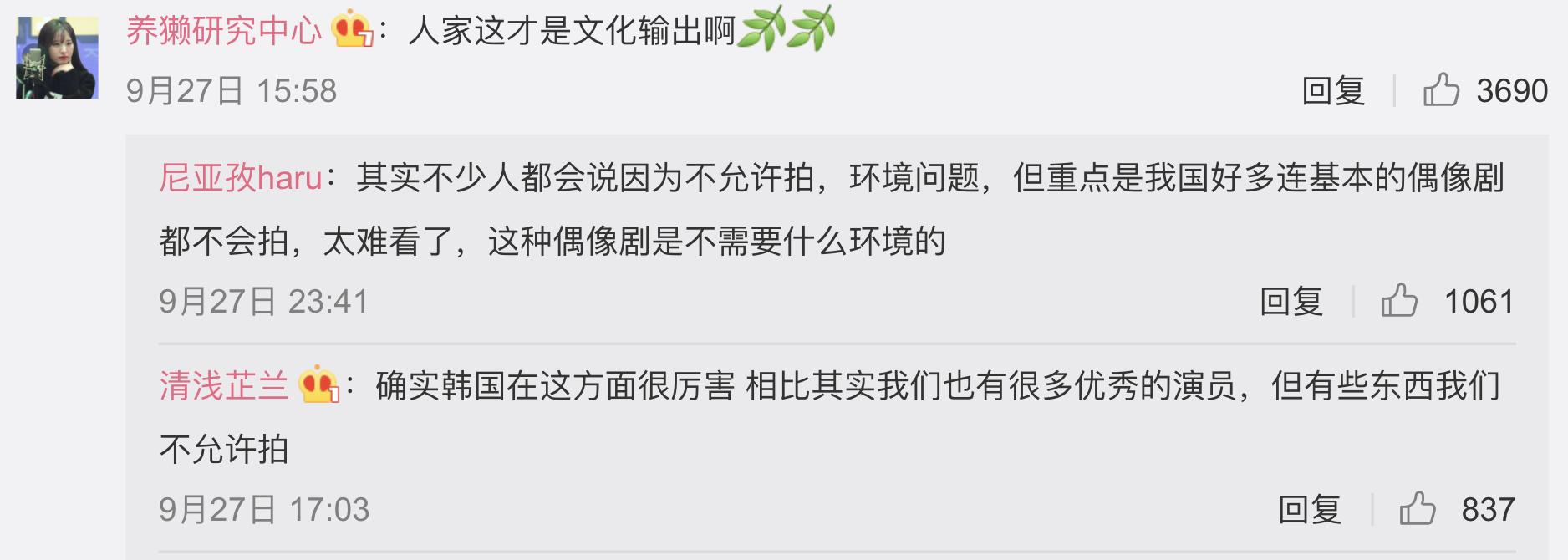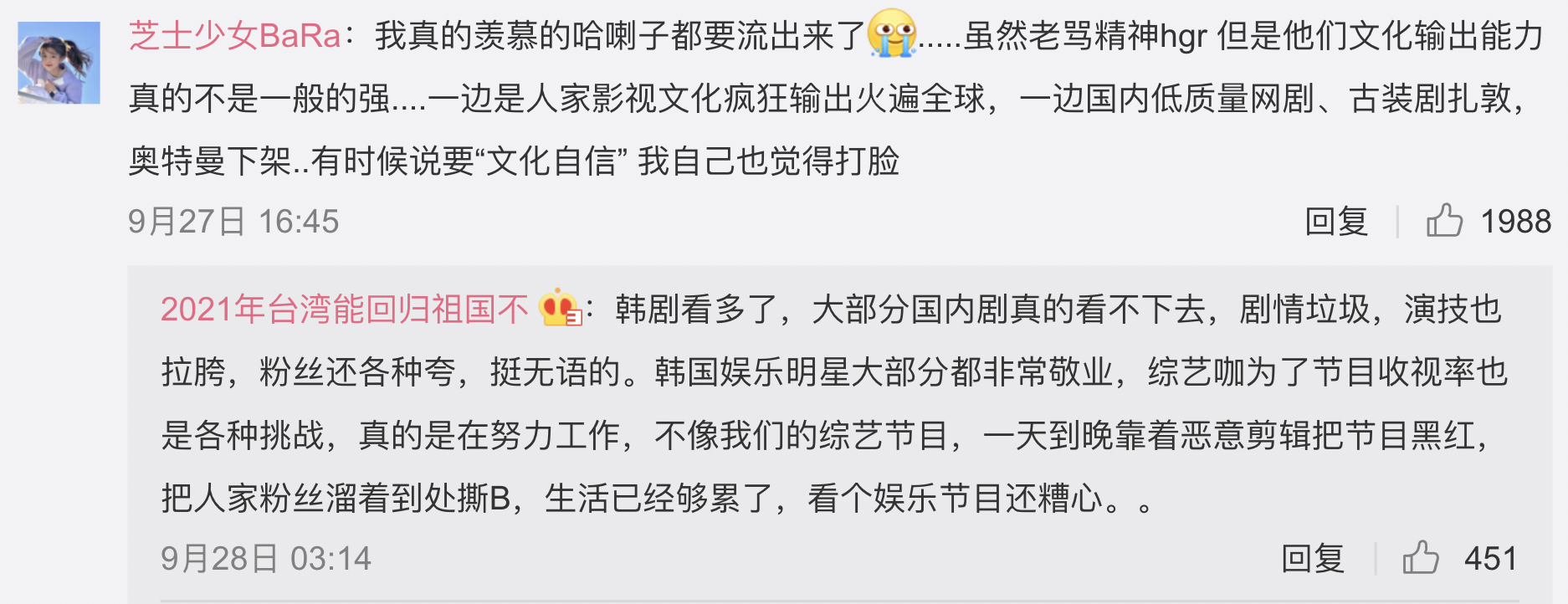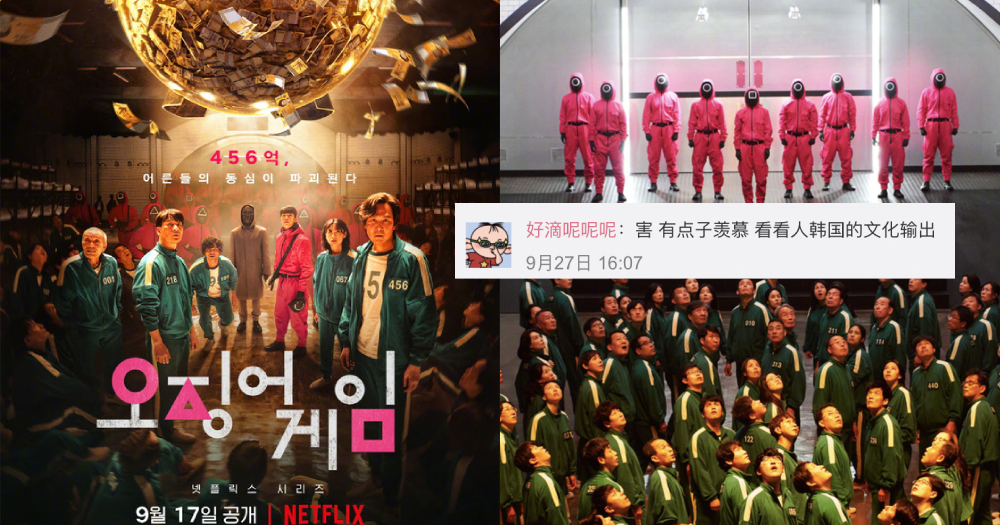Follow us on Telegram for the latest updates: https://t.me/mothershipsg
South Korean hit TV series "Squid Game" has taken the world by storm.
Many have praised it for its survival theme that kept audiences glued to their seats, and for highlighting societal issues like income inequality and financial struggles that many go through and can relate to.
In China, although fans had to resort to illegal streaming and downloads to watch it -- since Netflix is not available in China -- the show still blew up among the Chinese audience.
A Netflix staff said they are aware that viewers in China "are not streaming Squid game legally", but added that online piracy in the country is not limited to the show only, Korea JoongAng Daily reported.
So popular was the series among the Chinese that retailers, sensing a business opportunity, started selling online merchandise, and even knockoffs of the costumes seen in the show.
The show has also generated much discussion on popular social media platform Weibo, with the "Squid Game" hashtag having been seen more than 1.8 billion times.
Chinese envious of South Korea's success
The popularity of the South Korean series has prompted Chinese social media users to think about China's own cultural exports, with many agreeing that China's drama production at the moment pales in comparison to South Korea's.
Among those who think that Chinese shows are nowhere near the level of Korean ones, many of them also agree that the reason is due to regulatory restrictions that limit the scope of their productions, whereas South Korean production houses face less of such limitations and are allowed to run relatively more free.

"This (show by the Koreans) is the real cultural export (as opposed to China's)."
Reply: "Actually while most would say that (Chinese productions are lacking) due to censorship and environment problems, the point is that we don't even know how to shoot basic idol dramas, which look terrible. And this sort of idol dramas don't even need an environment (free of limitations)."
Reply: "South Korea is indeed impressive in this regard. In comparison, while we do have many talented actors, there are some things that we're not allowed to film."

"Sighs, I'm kind of envious. Look at the cultural exports that South Korea is producing."
Reply: "China only has (dramas about) palace scheming, time travel, mother and daughter in-law relationships, school romance, family, anti-Japanese war. Other than palace dramas, I doubt foreigners like to watch the others. Also, palace dramas recently are getting more and more boring."
Reply: "If we're not allowed to film, then there's nothing much for us to export."

"I'm so envious to the point that I'm salivating... Although we often bash the Koreans for being mental, they are really remarkable when it comes to their cultural exports... While they have been pushing out TV and film productions, which have sparked a worldwide craze, we have low quality web dramas and historical series, and we have banned (Japanese show) "Ultraman". Sometimes when I hear that we need to have 'cultural confidence', I feel like we are slapping ourselves."
Reply: "After watching several Korean dramas, I really can't bring myself to watch most domestically produced shows anymore. The plot is trash, the acting is rubbish, but fans still hype it up. I'm rather speechless. Korean entertainers are very professional most of the time, show biz veterans are willing to try all kinds of challenges in order to improve the show ratings. They are really working hard, unlike our variety shows, which were deliberately edited to make them appear in a negative light so the show can go viral, causing fans from different camps to be at each other's throats. Life is already hard, and we can't even catch a break when watching a show."
Some Weibo users brought up the cultural rivalry China faces with South Korea as well -- an online dispute was sparked several months ago when social media users from both sides argued over which country kimchi and hanbok had originated from.
But even so, they begrudgingly acknowledged the greater appeal that Korean shows have as compared to the ones produced in China.

"Some people appear to be really mad at South Korea, but why are they still paying attention to this social media user who blogs about Korean dramas, and upsetting themselves."
Reply: "Actually, what I hate most about South Korea is that they stole our traditions and culture, but their shows are indeed enjoyable, much better than ours."
Read more:
Top image by Netflix via Weibo
Follow and listen to our podcast here
If you like what you read, follow us on Facebook, Instagram, Twitter and Telegram to get the latest updates.
